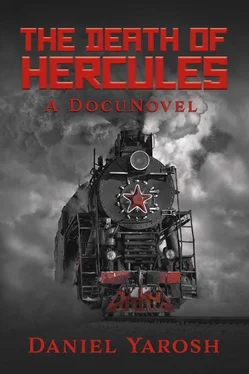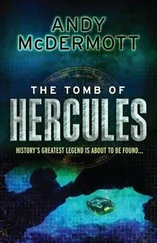Before he became President of the United States, Herbert Hoover was an accomplished humanitarian and had organized relief for starving Belgians and French during World War I. He was then named Program Director of the American Relief Administration, which had been formed in February 1919 and seeded with $100 million (equivalent to $1.5 billion in 2020 dollars) to provide emergency food for Eastern Europeans in the wake of World War I. Hoover had established a food relief center in Odessa, which the American government used as a cover to support the White Army against the Bolsheviks.
Max was taken up the chain of command, and each time he repeated his claim in English and Russian. He kept his story to “I was captured by the Bolsheviks while on a mission for the Americans and I escaped to return to Odessa.” He spent the night in a prison cell, where he was happy to sleep uninterrupted. The next day he was again interrogated by a White Army senior officer, who could not believe his story but also was unable to that deny he stood in front of him.
The next day, Friday the 13th of June 1919, was a luck day in Odessa. General Vladimir May-Mayevsky of the White Army took back Kyiv from the Bolshevik Red Army and triumphantly entered the city. In a spirit of magnanimity, the White Army commander turned Max over to Colonel William R. Grove of the United States Army and the American Relief Administration. Max spent several days as a guest of the Administration, sleeping in a side room of the spacious headquarters on Sofievskya across from the Archbishop’s Palace. Col. Gove’s assistants were eager to hear his accounts of the Anarchists military capabilities and their command structure. They also questioned Max as to when exactly he had been discharged from the Army and how did he get to Proskuriv. He explained that he traveled to Krakow by train (omitting any mention of Zalmund and Deena) and that he lost all his papers when he was captured by the Anarchists. Cable inquiries to the War office finally returned an answer. Their records showed that Max Shertok had received a special discharge while in France. Max silently sighed relief and thought, “My brother Jules is a master at covering for me. I wonder how he paid for that paperwork?”
When Max asked about Shneer-Solomon and Ethel in Kharkiv, the mood turned grim. Reports came back that the Bolsheviks murdered all their hostages when they fled on June 10 in advance of Generals Denikin and May-Mayevsky taking the city. Freshly dug graves were found at the Kharkiv Fortress but no one knew who was buried there.
Finally, on Monday June 23, 1919 Max was escorted by an US Army squad to the waterfront and placed on a US military transport ship returning from Odessa to New York.
Joseph Kikulsky rose to high command of the Cheka security forces in Moscow in early 1918. However, he allied himself in a power play with Felix Dzerzhinsky, head of Cheka, against Leon Trotsky, leader of the Red Army. Dzerzhinsky betrayed him to cover the rift, and Trotsky had Kikulsky executed by a single shot to the head in 1921.
Alexandra Kollontai continued as a prominent Bolshevik party official, but her strident feminist views led her to oppose the party on many social issues. She was gently exiled to the diplomatic corps and served the Soviet Union as a representative to several Scandinavian countries for twenty years. When she finally returned to Moscow she gave up her political agenda and retreated to obscurity. Her former husband, former lover, and several political comrades were murdered in Stalin’s purges. She died at 80 years old in 1952.
Cheka forces murdered between 500 and 1,000 hostages at their Kharkiv Fortress garrison before evacuating the city on June 10, 1919. However, many years later Max and Julius met a Kherson refugee in Minneapolis, who told them that Shneer-Solomon and Ethel Shertok survived their imprisonment by the Bolsheviks and returned home, only to die during the famine of 1921.
The three Shertok brothers were reunited in Minneapolis and embarked on fulfilling the dream of their father that they manage a farming empire. They borrowed money to buy a dairy farm in Cottonwood County, Minnesota. But a severe depression followed the Great War, and they could not make the payments on the farm. With the mortgage foreclosed, the brothers returned to the Twin Cities. Saul took a job in the post office, where he worked the remainder of his life. He married and had a son in 1923, whom he named Shneer-Solomon, or Sol. In 1926 he had a daughter he named Ethel. Julius started a mattress business which he managed to pass on to his son Samuel. Max became a machinist in the General Mills tool and dye shop in Minneapolis. He was a prominent unionist and friend to working men and politicians alike. He never talked about his time after the war, except to his brothers and sons Marvin and Marc.
Zalmund Hofitz recovered from the Spanish Flu in Krakow, returned to Pinsk and survived the pogroms of April 1919. But when the Bolsheviks threatened Warsaw, Zalmund chose the wrong side and was captured and executed by the Bolsheviks as a counter-revolutionary.
Deena Wójcik returned to her parent’s house sick with the flu and suffered a miscarriage. She recovered, accepted an arranged marriage to a widower with children who had lost his wife to the flu, and never spoke about her year of 1918 again.
Grigor Kotovsky eventually merged his Anarchist brigade with the Red Army and became a member of the Central Executive Committee of the Soviet Union. He continued his criminal side business with the help of his assistant Meyer Zayder. However, in 1925 Kotovsky had an affair with Zayder’s prostitute wife, and Zayder murdered him.
General Ivan Semesenko was captured after the Bolsheviks regained the Odessa region in 1920 and was executed for his part in the Proskuriv pogroms.
Sholom Schwartzbard deserted the Anarchist army because of their banditry, which he considered compromising the Revolution for a few rubles. He moved back to Paris where he opened a clock-and-watch repair shop. In 1924 he learned that Simon Petliura had also relocated to Paris. He used a picture of Petliura published in an encyclopedia to hunt for him, and on May 25, 1926 he spotted him on Rue Racine in the Latin Quarter. He pulled out his pistol, fired seven shots and murdered him. Schwartzbard was arrested and tried for murder but was acquitted as a just killing because Petliura had committed crimes against humanity.
Marusya continued fighting with the Anarchists, but the military setbacks for both the Bolsheviks and Anarchists in June 1919 let to a rupture between the armies. Marusya abandoned the formal military and went underground. She reunited with her husband Witold Brzostek from Paris and completed several sabotage missions, before she and her husband were captured by the White Army and executed on September 16, 1919.
The Death of Hercules
Hercules, half-man and half-god, was newly married to Deianira. On their honeymoon travels they faced a difficult crossing over a flooded river. The centaur Nessus appeared and offered to help Deianira across. However, after carrying Deianira across, he tried to rape her. Seeing this from the other riverbank, the enraged Hercules shot a poison arrow which mortally wounded Nessus. As he lay dying, Nessus offered Deianira an apology and his cloak, stained with his tainted blood and semen. He told her that if she wanted Hercules to remain faithful to her, she only had to have him wear the smock. After reuniting, Deianira gave Hercules the tunic, which he put on. He immediately fell down in agony and tried to remove it, ripping his flesh from his bones. Rather than suffer, Hercules chose to be burnt on a funeral pyre, incinerating his mortal side and thereby joining the other gods on Mount Olympus.
Читать дальше












